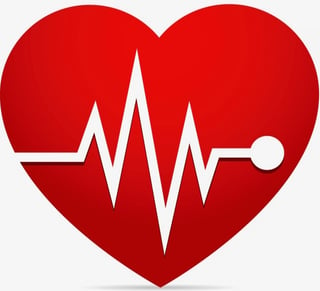 Everyone needs to know about heart disease and about the kinds of habits and conditions that can raise risk. It’s your heart, and you’re in charge. This is a basic guide to the most important risk factors for heart disease and how each of them affects a person's health.
Everyone needs to know about heart disease and about the kinds of habits and conditions that can raise risk. It’s your heart, and you’re in charge. This is a basic guide to the most important risk factors for heart disease and how each of them affects a person's health.
Smoking
Smoking is the leading cause of preventable death and disease in the United States. Smokers are two to six times more likely to suffer a heart attack than nonsmokers, and the risk increases with the number of cigarettes smoked each day.
Smoking can shorten a healthy life, because smokers are likely to suffer a heart attack or other major heart problem at least 10 years sooner than nonsmokers.
Smoking greatly increases the chances that a person will develop lung cancer. Cigarette smoking also causes many other types of cancer, including cancers of the mouth, urinary tract, kidney, and cervix.
Smoking also causes most cases of chronic obstructive lung disease, which includes bronchitis and emphysema. According to a recent report from the U.S. Surgeon General, exposure to smoke at home or work increases a nonsmoker’s risk of developing heart disease by 25 to 30 percent.
High Blood Pressure
High blood pressure, also known as hypertension, is another major risk factor for heart disease, as well as for kidney disease and congestive heart failure.
High blood pressure is also the most important risk factor for stroke.
Major contributors to high blood pressure are a family history of the disease, overweight, and eating a diet high in salt and sodium. Older individuals are at higher risk than younger people. Among older individuals, women are more likely than men to develop high blood pressure.
But nearly all of us are at risk, especially as we grow older. Middle-aged Americans who don’t currently have high blood pressure have a 90% chance of eventually developing the disease.
High blood pressure is often called the “silent killer,” because it usually doesn’t cause symptoms. As a result, many people pay little attention to their blood pressure until they become seriously ill. The good news is that you can take action to control or prevent high blood pressure, and thereby avoid many life-threatening disorders.
High Blood Cholesterol
The higher your blood cholesterol level, the greater your risk for developing heart disease or having a heart attack. To prevent these disorders, everyone should make a serious effort to keep their cholesterol at healthy levels. If you already have heart disease, it is particularly important to lower an elevated blood cholesterol level to reduce your high risk for a heart attack.
People with diabetes also are at especially high risk for a heart attack. If you have diabetes, you will need to take steps to keep both your cholesterol and your diabetes under control.
Overweight and Obesity
A healthy weight is important for a long, vigorous life. Yet overweight and obesity have reached epidemic levels in the United States. The more overweight a person is, the higher their risk for heart disease.
Being overweight also increases the risks for stroke, congestive heart failure, gallbladder disease, arthritis, and breathing problems, as well as for breast, colon, and other cancers. It is hard to overstate the dangers of an unhealthy weight. If you are overweight, you are more likely to develop heart disease even if you have no other risk factors.
The bottom line is that maintaining a healthy weight is an extremely important part of heart disease prevention. It can help to protect your health—and may even save your life.
Physical Inactivity
Physical inactivity raises your risk of heart disease. It boosts your chances of developing heart-related problems even if you have no other risk factors.
It increases the likelihood that you will develop other heart disease risk factors, such as high blood pressure, diabetes, and overweight.
Overall, older people are less likely to be active than younger individuals, and women tend to be less physically active than men. Fortunately, as little as 30 minutes of moderate activity on most, and preferably all, days of the week helps to protect your health. This level of activity can reduce your risk of heart disease as well as lower your chances of having a stroke, colon cancer, high blood pressure, diabetes, and other medical problems.
Diabetes
Diabetes is a major risk factor for heart disease and stroke. More than 65% of people who have diabetes die of some type of cardiovascular disease.
The type of diabetes that most commonly develops in adulthood is type 2 diabetes. In type 2 diabetes, the pancreas makes insulin, but the body cannot use it properly and gradually loses the ability to produce it. Type 2 diabetes is a serious disease.
In addition to increasing the risk for heart disease, it is the #1 cause of kidney failure, blindness, and lower limb amputation in adults. Diabetes can also lead to nerve damage and difficulties in fighting infection.
The risk of type 2 diabetes rises after the age of 45. You are much more likely to develop this disease if you are overweight, especially if you have extra weight around your waist. Other risk factors include physical inactivity and a family history of diabetes.
Symptoms of diabetes may include fatigue, nausea, frequent urination, unusual thirst, weight loss, blurred vision, frequent infections, and slow healing of sores.
But type 2 diabetes develops gradually and sometimes has no symptoms. Even if you have no symptoms of diabetes, if you are overweight and have any of the risk factors for type 2 diabetes, ask your doctor about getting tested for it.

